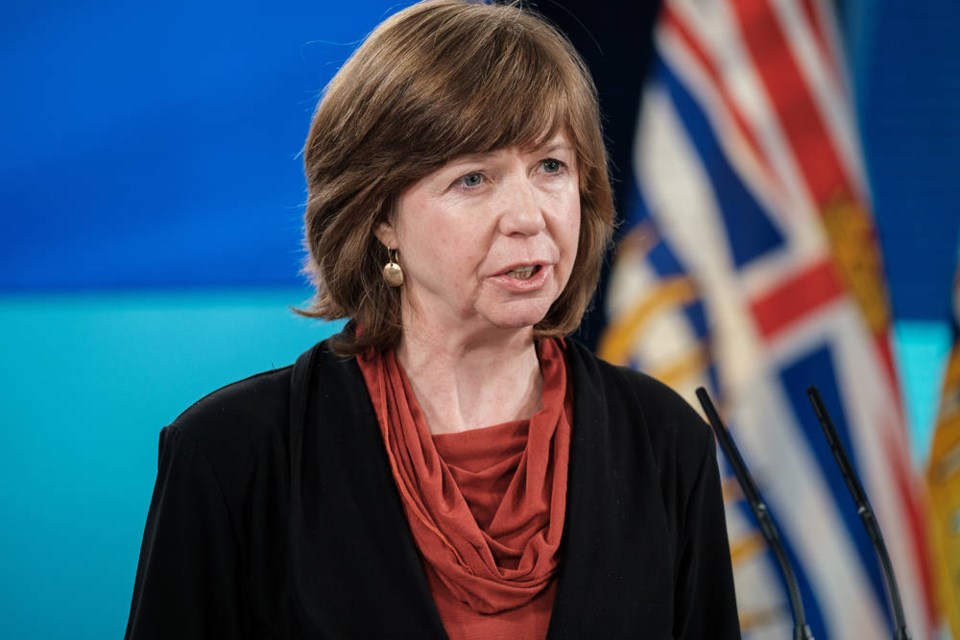British Columbians are receiving better access to mental health and substance use services under provincial initiatives, the minister of mental health and addictions said in releasing a new report Sept. 14.
Sheila Malcolmson said B.C.’s 10-year plan, A Pathway to Hope, for building strong mental health and addictions care confirms people are getting help.
“We are working hard to ensure people in B.C. get access to seamless, integrated mental health and substance use care that can be found quickly and close to home,” Malcolmson said. “Step by step, we are transforming mental health and substance use care in B.C.”
The Pathway to Hope roadmap initially focused on a three-year plan to address priority needs: supporting Indigenous-led initiatives; improving wellness for children, youth and young adults; saving lives through better substance use care; and improving access to quality care overall.
Malcolmson said two years in, new services and supports have been established across all priority areas, with more than half of the items achieved and the remaining actions in implementation stages, many of them in Indigenous communities.
According to the report, progress has been made toward establishing a seamless system of mental health and substance use care for children, youth and young adults. Foundry Youth Centres are open in 11 communities, with an additional eight centres in development. The facilities offer multiple services and programs to youth in one location.
Over the past two years, more than 12,000 youth accessed Foundry services in more than 90,000 visits.
The report also found virtual services have proven to be effective, particularly during the pandemic and for people who live in rural and remote areas of the province.
Further, B.C. has expanded access to take-home naloxone kits to 350 new sites, more than doubled the number of overdose prevention and supervised consumption sites — with 1.37 million visits and 7,082 overdoses survived at these sites with no deaths — and introduced Canada’s first policy on prescribed safer supply.
More than 7,000 lives have been lost in the overdose crisis as an illicit drug supply became further toxic by the year.
And then COVID-19 hit.
“After seeing a decline in overdose deaths in 2019, deaths from confirmed or suspected illicit drug toxicity have been increasing since the beginning of the COVID-19 public health emergency in March 2020,” the report said. “The key driver of increased mortality is the growing toxicity and unpredictability of street drugs since late March 2020, likely due to disruptions to the drug supply chain.”
“Prior to COVID-19, the number of overdose deaths were coming down in B.C. for the first time since 2012,” the report said. “The pandemic has shone a light on the gaps in the fragmented system of care and highlighted, even more starkly, the need to improve access to a more coordinated and culturally safe mental health and substance use system of care for everyone, particularly for the most vulnerable people living in British Columbia.”
It stressed the unintended consequences of COVID-19 measures have been particularly hard on people who use drugs, with many facing isolation and loneliness, disconnection from usual in-person supports, financial strain and mental-health challenges.
As a result, the provincial government established more programs to assist during the dual crisis.
Canadian Mental Health Association B.C. CEO Jonny Morris said government investments have made earlier access to support possible, with positive impacts to the mental health and well-being of families, youth and adults.
Work has included expanded access to Foundry Youth Centres to support young people and their families as they deal with mental health and addiction concerns.
Foundry executive director Steve Mathias said it has worked with eight communities to establish new Foundry centres across B.C. by 2022-23.
“Soon, we will be working with another four communities to open additional centres by 2024, bringing us to a total of 23 centres in our network and serving over 30,000 youth per year by 2025,” Mathias said.
Foundry also uses virtual services to assist those youth and families.
“This service is filling a large gap and reaching youth that are unable to access our centres from across B.C.,” Mathias said. “It is ensuring we achieve our vision of reaching young people early, to help address small problems before they become bigger ones.”



